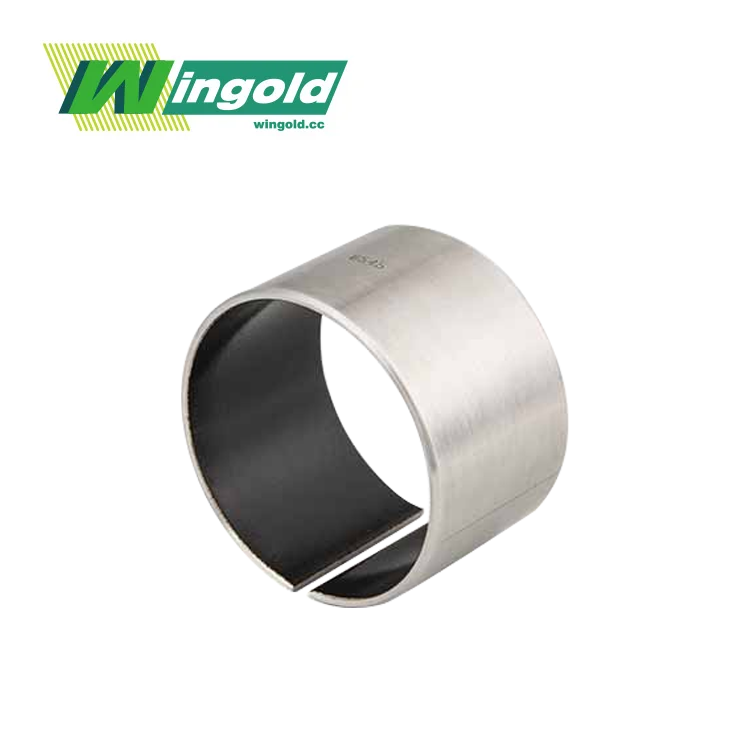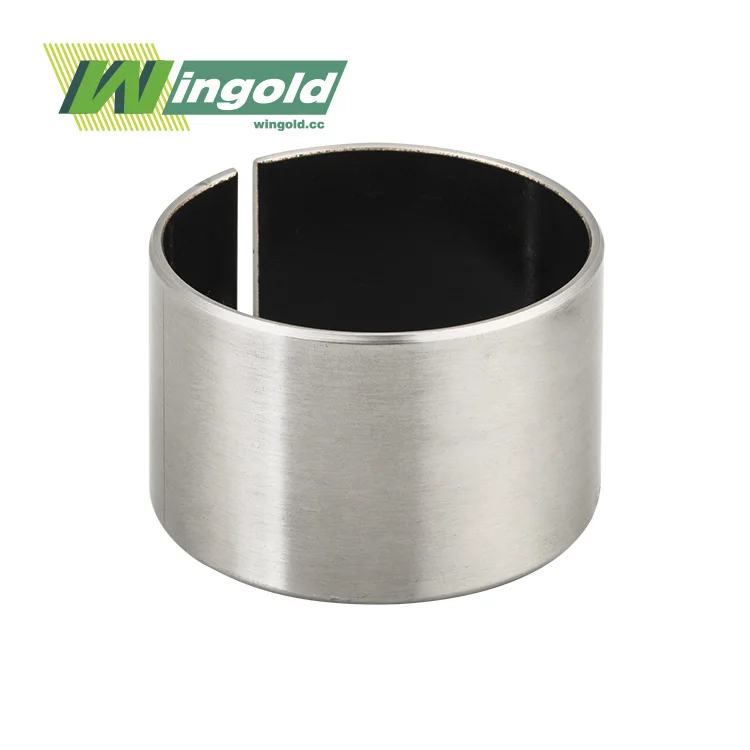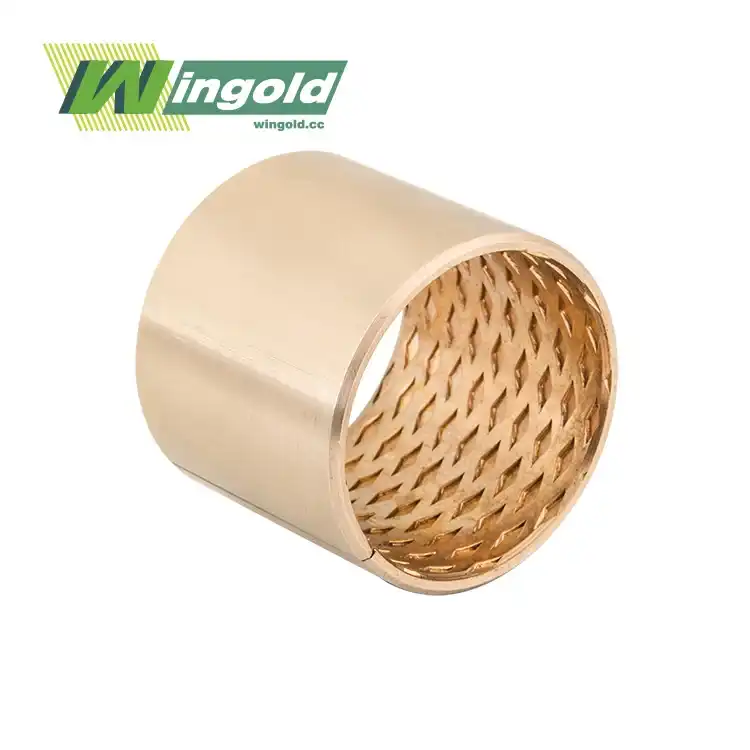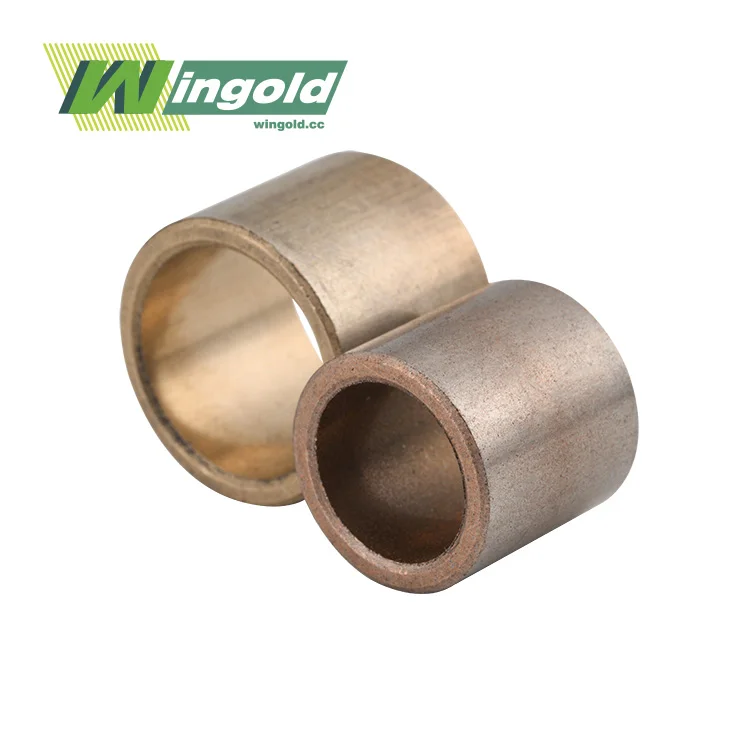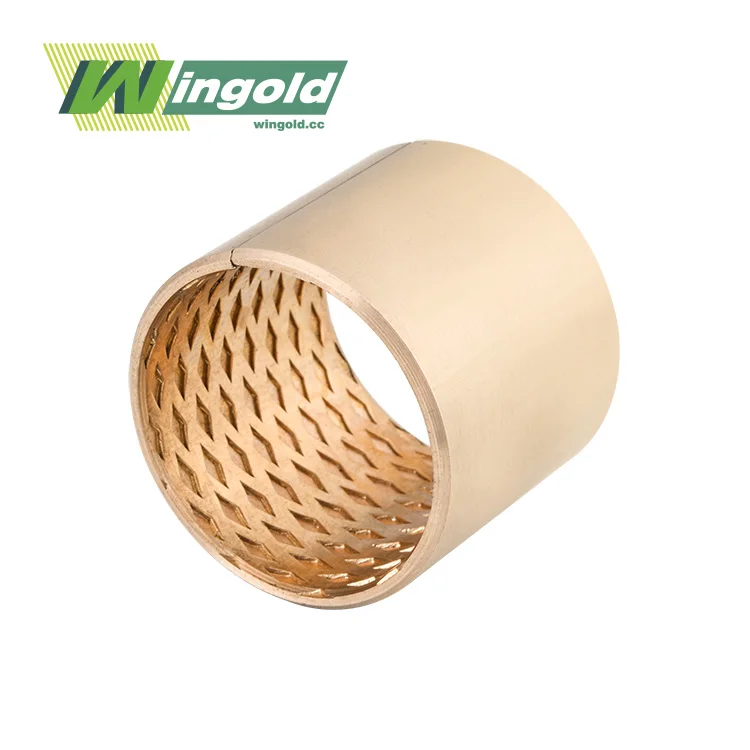The Remarkable Properties of Stainless Steel Sleeve Bearings
Unparalleled Corrosion Resistance
Stainless steel sleeve bearings boast exceptional corrosion resistance, a critical feature for harsh environment applications. The high-grade stainless steel alloys used in their construction, such as 304, 316, 420, and 440C, provide a robust defense against rust and chemical corrosion. This inherent resistance allows these bearings to maintain their structural integrity and performance even when exposed to aggressive substances like acids, alkalis, and seawater.
The corrosion-resistant properties of stainless steel sleeve bearings extend their lifespan significantly, reducing the need for frequent replacements and minimizing downtime in industrial processes. Industries such as chemical processing, marine applications, and food production benefit immensely from this feature, as it ensures consistent operation in environments where standard bearings would rapidly deteriorate.
Superior Load-Bearing Capacity
Despite their sleek and compact design, stainless steel sleeve bearings demonstrate remarkable load-bearing capabilities. These bearings can withstand pressures up to 140 N/mm², making them suitable for applications involving heavy machinery and equipment. The ability to handle significant radial loads without deformation or failure is a testament to the strength and durability of the stainless steel material.
The high load capacity of these bearings is particularly advantageous in industries such as construction, mining, and heavy manufacturing, where equipment is subjected to extreme forces. By employing stainless steel sleeve bearings, engineers can design more compact and efficient machines without compromising on strength or reliability.
Impressive Temperature Resistance
One of the standout features of stainless steel sleeve bearings is their wide operating temperature range. These bearings can function effectively from -195°C to 280°C, making them suitable for both cryogenic applications and high-temperature environments. This temperature versatility is crucial for industries that deal with extreme thermal conditions, such as aerospace, automotive, and energy production.
The ability to maintain performance across such a broad temperature spectrum ensures that stainless steel sleeve bearings can be relied upon in diverse operational scenarios. Whether it's in the frigid conditions of deep-sea exploration or the scorching heat of industrial furnaces, these bearings continue to operate efficiently, contributing to the overall reliability and safety of the equipment they're part of.
Advanced Features Enhancing Performance in Harsh Environments
Self-Lubricating Properties
A key advantage of modern stainless steel sleeve bearings is their self-lubricating capability. Many of these bearings incorporate a layer of sintered corrosion-resistant alloy powder infused with PTFE (polytetrafluoroethylene), which provides a low-friction surface. This self-lubricating feature eliminates the need for external lubrication, making these bearings ideal for use in environments where conventional lubrication methods are impractical or prohibited.
The self-lubricating nature of these bearings contributes to their maintenance-free operation, reducing downtime and lowering overall operational costs. Industries such as food processing and pharmaceutical manufacturing, where contamination from lubricants is a concern, benefit greatly from this feature. The bearings can operate efficiently in both dry and oil-lubricated conditions, with a maximum allowable PV value (pressure-velocity) of 3.6 N/mm²·m/s in dry conditions and an impressive 50 N/mm²·m/s when oil-lubricated.
Low Friction and Wear Resistance
Stainless steel sleeve bearings exhibit exceptionally low friction coefficients, typically ranging from 0.04 to 0.20. This low friction translates to reduced wear on both the bearing and the mating components, extending the overall lifespan of the machinery. The smooth surface finish of these bearings, often achieving a surface roughness (Ra) between 0.1 and 0.8 μm, further contributes to their low-friction performance.
The wear-resistant properties of stainless steel sleeve bearings make them particularly valuable in applications where frequent part replacement is costly or impractical. Industries such as offshore drilling, wind energy, and aerospace benefit from the extended service life and reduced maintenance requirements offered by these durable bearings.
Customization and Precision Engineering
Stainless steel sleeve bearings can be customized to meet specific application requirements, offering a wide range of dimensions and configurations. With inner diameters ranging from 3mm to 500mm, outer diameters from 6mm to 600mm, and lengths from 5mm to 1000mm, these bearings can be tailored to fit virtually any application.
The precision engineering employed in the manufacture of these bearings ensures tight tolerances and excellent concentricity. This level of precision is crucial for applications requiring smooth operation and minimal vibration, such as in high-speed machinery or sensitive scientific instruments. The ability to customize these bearings allows engineers to optimize their designs for specific harsh environment challenges, further solidifying the role of stainless steel sleeve bearings in future industrial applications.
Future Applications and Innovations
Emerging Industries and Technologies
As new industries emerge and existing ones evolve, the demand for robust bearing solutions capable of withstanding harsh environments continues to grow. Stainless steel sleeve bearings are finding new applications in cutting-edge fields such as renewable energy, space exploration, and advanced manufacturing processes. For instance, in the rapidly expanding field of offshore wind energy, these bearings play a crucial role in ensuring the reliability of turbine components exposed to corrosive sea spray and extreme weather conditions.
In the realm of electric vehicles, stainless steel sleeve bearings are being incorporated into various drivetrain components, where their ability to operate efficiently under high loads and temperatures is paramount. As the automotive industry shifts towards more environmentally friendly solutions, the maintenance-free and long-lasting nature of these bearings aligns perfectly with the goals of sustainability and reduced lifecycle costs.
Advancements in Material Science
Ongoing research in material science is paving the way for even more advanced stainless steel sleeve bearings. Scientists and engineers are exploring new alloy compositions and surface treatments that could further enhance the bearings' performance in harsh environments. These innovations aim to push the boundaries of what's possible in terms of load capacity, temperature resistance, and corrosion protection.
One promising area of development is the integration of nanomaterials into the bearing structure. By incorporating nano-scale particles or coatings, researchers hope to create bearings with unprecedented wear resistance and self-lubricating properties. These advancements could lead to stainless steel sleeve bearings capable of operating in even more extreme conditions, opening up new possibilities for industrial applications in previously inaccessible environments.
Integration with Smart Technologies
The future of stainless steel sleeve bearings also lies in their integration with smart technologies. As Industry 4.0 continues to reshape manufacturing and industrial processes, there's a growing need for components that can provide real-time data on their performance and condition. Researchers are exploring ways to embed sensors directly into stainless steel sleeve bearings, allowing for continuous monitoring of factors such as temperature, vibration, and wear.
This integration of smart technologies with stainless steel sleeve bearings could revolutionize predictive maintenance strategies in harsh environment applications. By providing early warnings of potential issues, these smart bearings would enable proactive maintenance, further reducing downtime and extending the operational life of critical machinery. The combination of the bearings' inherent durability with real-time monitoring capabilities represents a significant step forward in ensuring the reliability and efficiency of industrial equipment in challenging environments.
Conclusion
Stainless steel sleeve bearings are undoubtedly positioned to play a pivotal role in the future of harsh environment applications. Their unique combination of corrosion resistance, load-bearing capacity, and ability to perform under extreme conditions makes them an invaluable component in a wide range of industries. As technology continues to advance and new challenges emerge, these bearings will likely evolve further, incorporating innovative materials and smart technologies to meet the ever-increasing demands of modern industry.
For those seeking to leverage the benefits of stainless steel sleeve bearings in their applications, Wingold offers a comprehensive range of high-quality solutions. Our team of experts is ready to assist you in selecting the perfect bearing for your specific needs, ensuring optimal performance even in the harshest environments. To learn more about our products and how they can benefit your operations, please don't hesitate to contact us at info@wingold.cc.
FAQ
What makes stainless steel sleeve bearings suitable for harsh environments?
Their corrosion resistance, high load capacity, wide temperature range, and self-lubricating properties make them ideal for challenging conditions.
Can stainless steel sleeve bearings operate without lubrication?
Yes, many are designed with self-lubricating materials, allowing for maintenance-free operation in environments where external lubrication is impractical.
What industries benefit most from stainless steel sleeve bearings?
Industries such as chemical processing, marine applications, food production, aerospace, and renewable energy benefit greatly from their durability and performance in harsh conditions.
